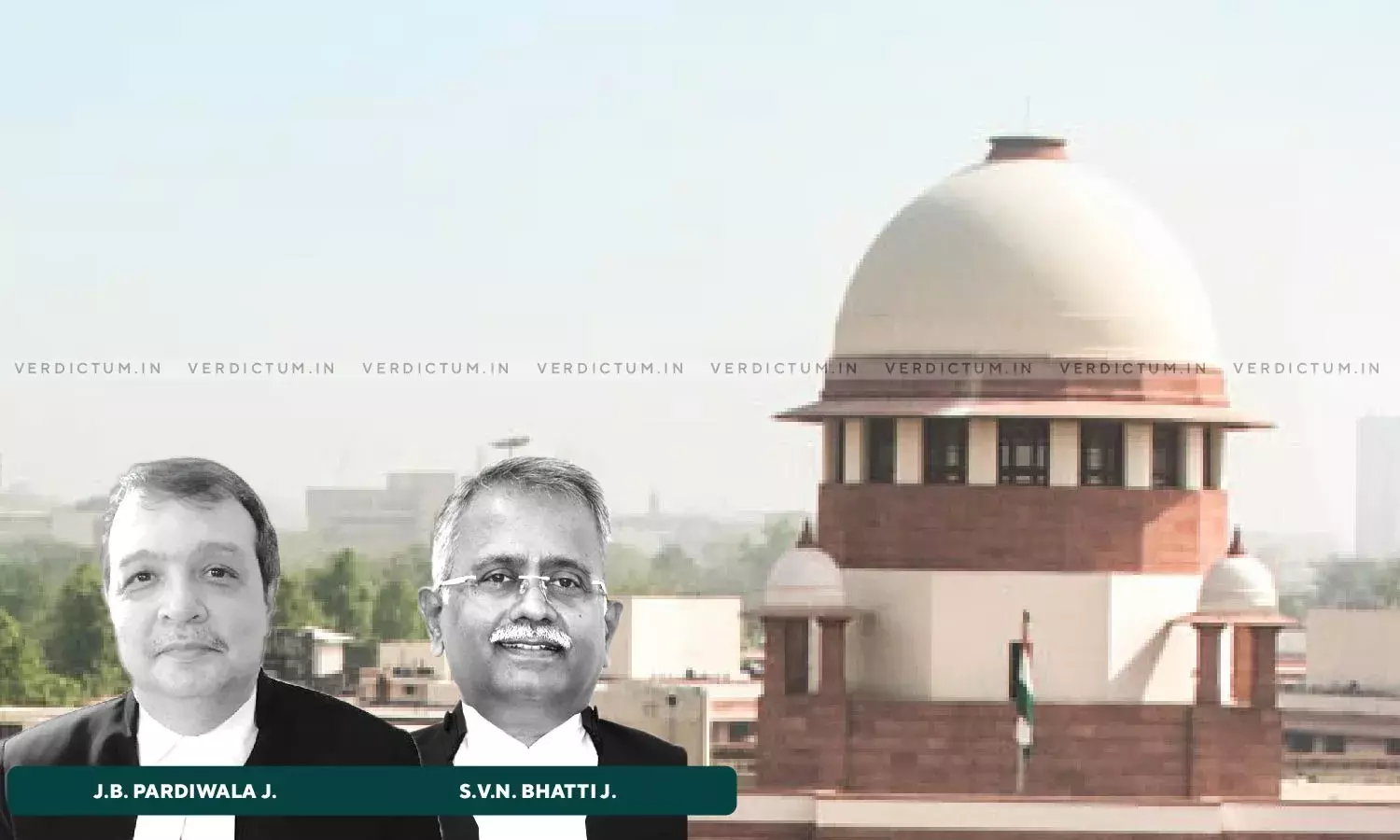State's Attempt To Evict Respondent Without Following Proper Legal Procedure Was Illegal & Unconstitutional: SC In Orissa Govt Land Settlement Act Case

The Supreme Court dismissed a Civil Appeal filed by the Industrial Infrastructure Development Corporation of Orissa (IDCO) over a disputed property, which was first allotted to the Respondent and then, without following proper procedure, partly allotted to IDCO.
The Court held that the disputed property included the Respondent and IDCO’s land. The Court observed that the State's attempt to evict the Respondent without following proper legal procedures was illegal and unconstitutional.
The bench comprising Justice J.B. Pardiwala and Justice S.V.N. Bhatti observed, “The law on the power of re-entry is fairly wellsettled. The re-entry without reference to the law, in the facts and circumstances of this case, has been rightly held in favour of the Writ Petitioners (Respondent)…The answer of the High Court on Points 1 and 2 is available, and the method adopted by the respondent-State for dispossessing or attempting to dispossess the first petitioner is unconstitutional and illegal. The State ought not to approbate and reprobate on the possession of Vice Admiral Ganesh Prasad Panda of petition land”.
Senior Advocate Jana Kalyan Das appeared for Appellant/IDCO and Advocate Subhasish Mohanty appeared for Respondent.
Background:
A former army personnel, Surgeon Vice Admiral Ganesh Prasad Panda, applied for government land under a policy intended for armed personnel who had fought in the Indo-China war. After verifying his eligibility, the Home Department of the State identified, verified and approved the land. Possession was handed over to the Respondent. However, the District Collector noticed an alleged infringement and filed a revision case against the assignment order. In 1989, the Writ Petitioner had the assigned property surveyed, settled, and marked explicitly with boundaries. In 2001, the State requested the Tehsildar to process the alienation proposal of land identified by IDCO quickly. From the records, the alienation of land in favour of IDCO began upon their request for identified land, but without verifying whether the government land claimed by the State was free from encumbrances and available for assignment. In 2005, the Collector approved the allocation in favour of the State. IDCO alleged that subordinate officers of the District Administration interfered with their possession, demolished existing structures, and threatened to dispossess IDCO from the petitioned land. In 2006, a Show Cause Notice under Section 3(B) of the Orissa Government Land Settlement Act, 1962, was issued to IDCO, proposing to resume the petition land on the grounds of alleged violation of the grant's conditions. The formalities of alienation, confirmation, etc., in favour of IDCO, were completed by the District Administration. The High Court noted that the land leased to Respondent was correctly identified. The High Court also declared the resumption proceedings initiated by the Tehsildar were illegal. Aggrieved by the order of the High Court, IDCO preferred a Civil Appeal before the Supreme Court.
The Court noted that in 1981, the IDCO was granted 4.800 acres of agricultural land within the plot. The Tahsildar confirmed the Respondent’s possession through a Resumption Notice. Records show that the State gave the IDCO possession of 42.870 acres of land before any recovery proceedings had been initiated. The Court further noted that it was unclear whether this assignment overlaps with the land assigned to Respondent. The State has the power to re-enter and resume possession of the land, which is considered an automatic process.
Furthermore, the Court observed that if land given to IDCO is considered separate or unique, any disruption to the Respondent’s possession of their land is unjustified and against the law. However, if the area in question includes the Respondent’s land and the land granted to IDCO, settling in IDCO's favour without following proper legal procedures to remove the Respondent was unlawful and against the constitution.
“The above observation is necessary for, firstly, if we assume that the land alienated to IDCO is different or distinct, then, interference with possession of petition land is arbitrary and illegal. Secondly, if the extent viz. petition land and land settled in favour of IDCO, then, without dispossessing the petitioner(s), in the manner known to law, the settlement in favour of IDCO, by including petition land, is illegal and unconstitutional”, the Bench noted.
Accordingly, the Court dismissed the Appeal.
Cause Title: Chairman-Cum-Managing Director, Industrial Infrastructure Development Corporation of Orissa v Late Surgeon Vice Admiral GP Panda (Thr His Legal Heirs) And Others (2023 INSC 753)

